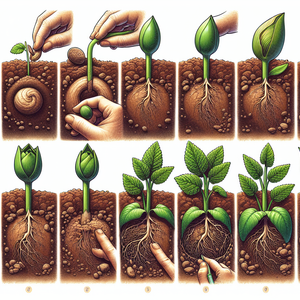The Hidden Influencers of Presidential Approval Ratings

Social media has revolutionized the way political discourse occurs, creating a platform where information can spread rapidly and widely. Platforms like Twitter, Facebook, and Instagram are not merely venues for personal expression but have become pivotal in shaping political outcomes. In this digital age, a viral tweet or trending hashtag can sway public opinion almost instantaneously, making social media a significant player in the realm of presidential approval ratings. A study conducted by the Pew Research Center revealed that social media sentiment often serves as an early indicator of approval ratings. This is particularly significant during major political events when immediate public reactions are captured in real time, often outpacing traditional polling methods. For example, during the COVID-19 pandemic, the online sentiment surrounding President Trump's handling of the crisis shifted dramatically, reflecting a growing public discontent before formal polls could quantify it. The emotional immediacy of social media allows citizens to express their approval or disapproval in a manner that traditional media channels cannot capture effectively, thus acting as both a barometer and a catalyst for approval ratings.
Celebrity Endorsements: The Power of Influence
While the influence of celebrity endorsements is often underestimated in political discussions, it plays a critical role in shaping public attitudes toward presidential figures. Celebrities possess the ability to reach vast audiences and can significantly sway the opinions of their followers, particularly among younger demographics who are typically more influenced by popular culture than by traditional political discourse. The 2008 election of President Barack Obama serves as a compelling case study in the impact of celebrity endorsements. High-profile figures such as Beyoncé, Jay-Z, and Oprah Winfrey rallied behind Obama, helping to galvanize support among younger voters and enhancing his approval ratings. In contrast, negative commentary from celebrities can lead to a decline in approval ratings. During President Donald Trump's tenure, the backlash from various high-profile figures often resonated with younger audiences, contributing to a decrease in his approval ratings. This dynamic illustrates that celebrity influence can significantly enhance or diminish a president's public perception.
Grassroots Movements: The Voice of the People
Grassroots movements have emerged as potent influencers of presidential approval ratings, providing a platform for collective public sentiment on pressing issues such as climate change, healthcare reform, and social justice. These movements amplify the voices of ordinary citizens, creating a groundswell of support or opposition that can dramatically shift approval ratings. One notable example is the Women’s March that took place in January 2017, shortly after President Trump's inauguration. This massive mobilization demonstrated widespread discontent with the new administration and energized communities across the nation. The visibility of such movements can directly impact approval ratings, as they reflect the collective sentiment of a significant portion of the population. When citizens feel their voices are being heard through organized efforts, their support or opposition to presidential policies can intensify, leading to noticeable fluctuations in approval ratings.
As we navigate the complexities of modern politics, it is essential to recognize the hidden influencers of presidential approval ratings that extend beyond traditional metrics. Social media trends, celebrity endorsements, and grassroots movements are not merely supplementary factors; they are integral to understanding public sentiment in today's political climate. These dynamics highlight the evolving nature of political communication and the importance of considering a broader array of influences when assessing a president's performance. In an era where information is disseminated at lightning speed and public sentiment can shift overnight, it is crucial for political analysts, scholars, and the general public to appreciate these hidden dynamics. By doing so, we can gain a more nuanced understanding of how approval ratings are shaped, ultimately leading to a more informed discourse on the implications for democracy and governance in the 21st century.
Social Media Analyst
Political consulting firms, non-profit organizations, media companies
Core Responsibilities
Analyze social media trends to assess public sentiment regarding political figures and events.
Develop reports on social media impact on presidential approval ratings and other political metrics.
Monitor engagement metrics and devise strategies to enhance online presence and influence.
Required Skills
Expertise in social media platforms and analytical tools (e.g., Hootsuite, Google Analytics).
Strong communication skills for presenting findings to stakeholders.
Ability to interpret data and translate it into actionable insights.
Political Campaign Manager
Political parties, advocacy groups, campaign organizations
Core Responsibilities
Oversee the strategic planning and execution of political campaigns, including messaging and outreach.
Coordinate celebrity endorsements and grassroots movements to maximize voter engagement.
Manage campaign budgets and allocate resources effectively to ensure maximum impact.
Required Skills
Proven experience in campaign management or political strategy.
Strong networking skills to connect with influencers and community leaders.
Familiarity with current political landscape and voter behavior analytics.
Public Relations Specialist (Political Focus)
PR agencies, political parties, governmental agencies
Core Responsibilities
Craft and disseminate press releases and statements to shape media narratives around political figures.
Develop relationships with journalists and influencers to secure media coverage and manage public perception.
Monitor media coverage and public sentiment, responding to potential crises.
Required Skills
Excellent writing and communication skills tailored towards political audiences.
Experience in crisis management and reputation management.
Understanding of media relations and political communications.
Data Analyst (Political Science)
Research institutions, think tanks, political consultancies
Core Responsibilities
Analyze polling data and social media metrics to evaluate public opinion trends and their implications on political approval.
Create predictive models to forecast changes in approval ratings based on current events.
Collaborate with political strategists to guide campaign decisions based on data-driven insights.
Required Skills
Proficiency in statistical software (e.g., R, SPSS) and data visualization tools (e.g., Tableau).
Strong analytical and critical thinking skills to interpret complex data sets.
Background in political science or related fields preferred.
Grassroots Organizer
Non-profit organizations, advocacy groups, local political offices
Core Responsibilities
Mobilize and coordinate community members to participate in political movements and actions.
Develop outreach strategies to engage diverse demographics, particularly on issues like social justice and healthcare.
Facilitate events and training sessions to empower citizens to advocate for their causes.
Required Skills
Strong leadership and interpersonal skills to inspire and mobilize volunteers.
Experience in community organizing or advocacy work.
Ability to communicate effectively across various platforms and to diverse audiences.


